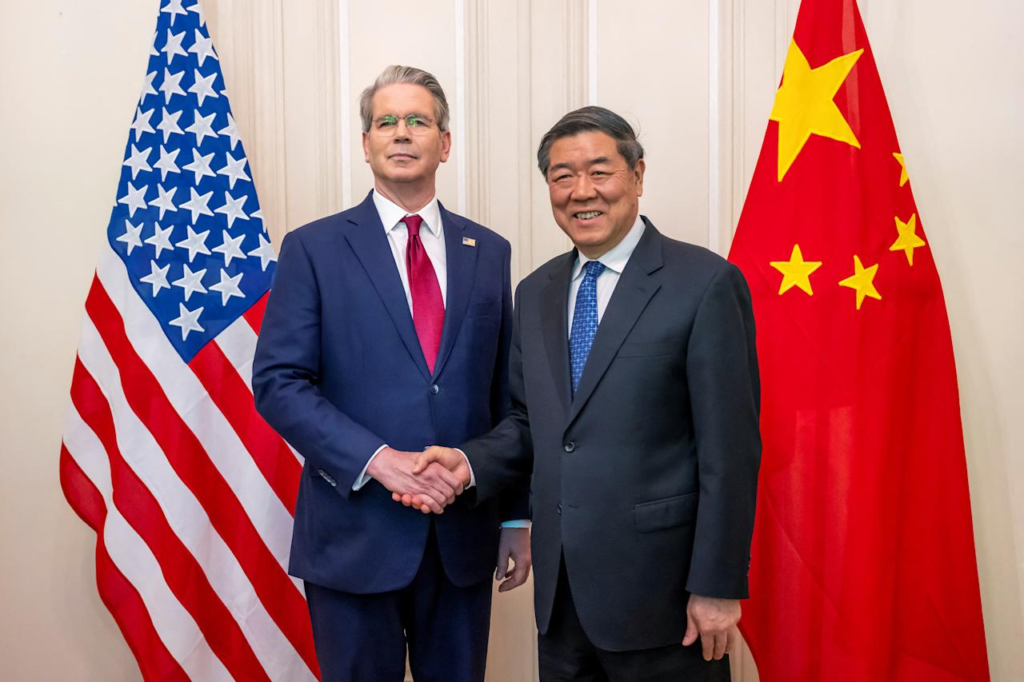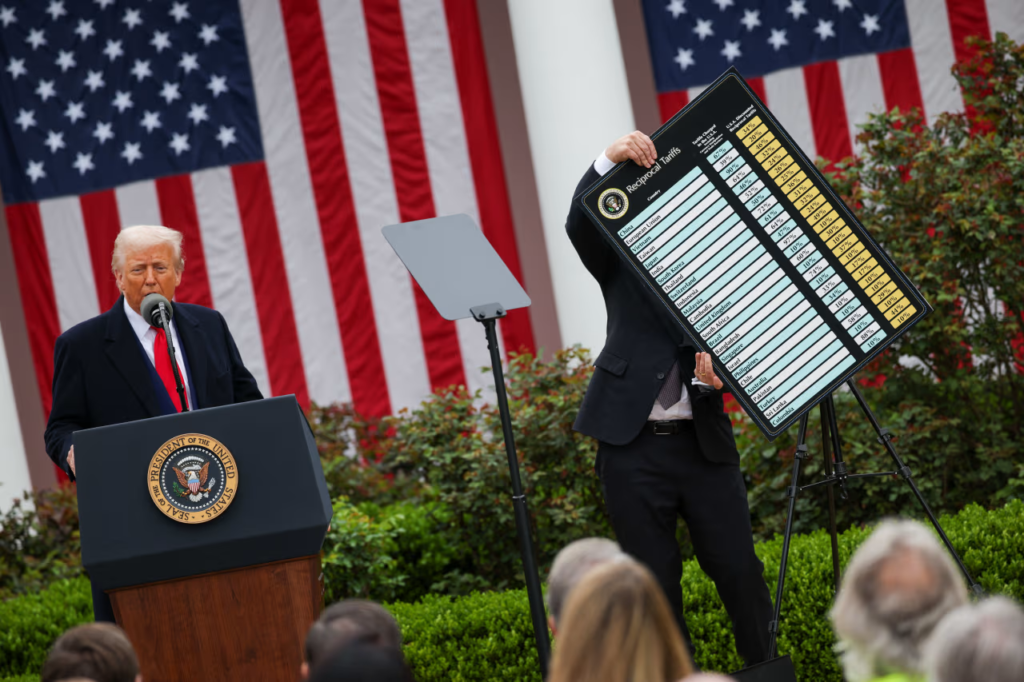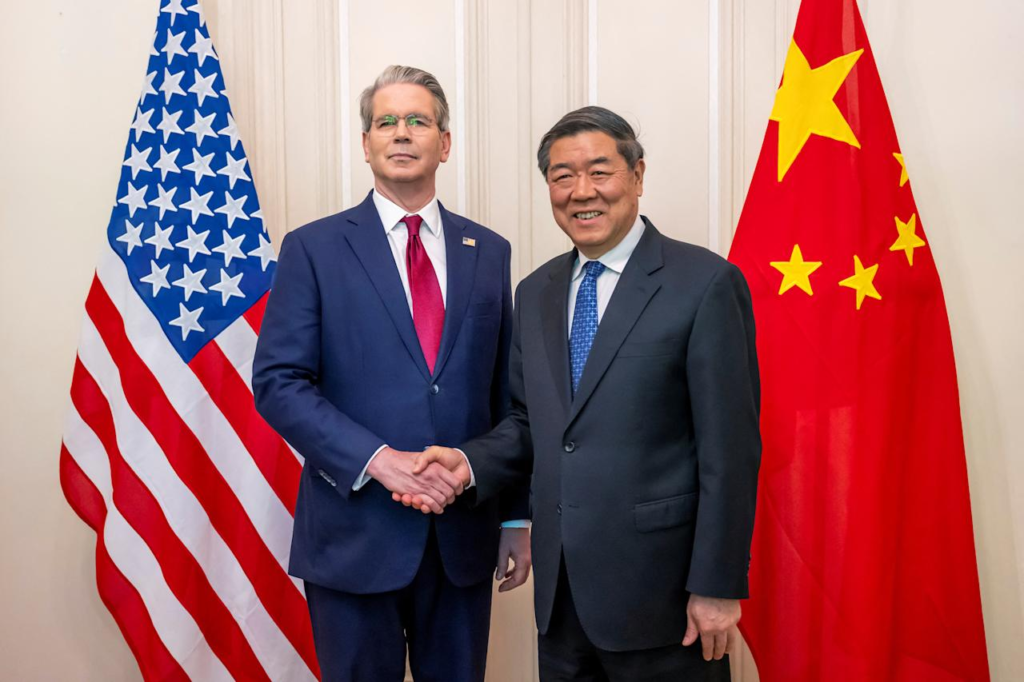In a recent survey conducted by Yahoo Finance, a staggering two-thirds of businesses across the United States have reported negative impacts from the tariffs implemented by President Donald Trump’s administration. The findings, drawn from a GlobalData Tariffs Sentiment Polls survey conducted after the U.S. announced a 90-day pause on most reciprocal tariffs on April 9, 2025, highlight growing concerns about the economic fallout of these trade policies. With 61% of 497 respondents from various industries expressing worry about the effects on their operations, the survey underscores the challenges businesses face in navigating an uncertain trade landscape. This article explores the survey’s key findings, the broader implications for U.S. businesses, and what the future might hold as the nation grapples with these economic policies.

The Survey: A Snapshot of Business Sentiment
The Yahoo Finance survey, powered by GlobalData, polled 497 businesses across a network of B2B news websites in the weeks following the tariff pause announcement. The results paint a sobering picture: 61% of respondents expect negative impacts from tariffs over the next 12 months, while only 20% anticipate any positive outcomes. Additionally, 57% of 602 respondents expressed significant concern about how tariffs will affect their operations, with another 11% noting mild concern. Only a quarter of respondents felt unconcerned, likely because their businesses—such as those in services or specific exempt sectors like semiconductors—face fewer tariff-related disruptions.
The survey’s timing is significant. It followed the so-called “Liberation Day” on April 2, 2025, when Trump’s administration ramped up tariffs, including a dramatic 145% levy on Chinese imports. This move sent shockwaves through global markets, causing stock prices to plummet and raising fears of a U.S. and global recession. Although the 90-day tariff pause has provided temporary relief, the uncertainty surrounding future trade deals continues to weigh heavily on businesses.

Why Businesses Are Worried
Tariffs, which are taxes imposed on imported goods, increase the cost of products coming into the U.S. For businesses, this means higher expenses for raw materials, components, or finished goods, which often translate into higher prices for consumers or reduced profit margins. The Yahoo Finance survey highlights several ways tariffs are impacting businesses:
- Rising Costs: Companies like Walmart and Home Depot have warned that tariffs are driving up costs. Walmart’s CFO told Yahoo Finance that the magnitude of cost increases on imported goods is “more than what retailers can bear,” prompting plans for price hikes. Similarly, Diageo, the maker of Johnnie Walker and Guinness, reported an expected $150 million annualized hit to profits due to tariffs.
- Supply Chain Disruptions: The survey reflects a sharp drop in imports, particularly from China, with cargo shipments plummeting by as much as 60% after the April tariff hikes. Businesses are struggling to find alternative suppliers, with some turning to Southeast Asian countries like Vietnam and Thailand. However, this shift comes with its own challenges, including higher shipping costs and potential delays.
- Uncertainty and Planning Challenges: The ever-changing tariff policies have left businesses in what one analyst described as a “state of near paralysis.” The Institute for Supply Management (ISM) reported that manufacturing activity hit a five-month low in April, with respondents noting that unpredictable tariff policies make it nearly impossible to plan investments or operations effectively.
- Consumer Impact: Businesses are passing on higher costs to customers, which could lead to reduced sales. The survey aligns with consumer sentiment polls, such as one from Yahoo News/YouGov, which found that 55% of Americans feel stressed about tariff-driven price increases, with 73% worried about affording groceries.
These concerns are echoed by industry leaders. JPMorgan CEO Jamie Dimon called the tariffs “pretty extreme,” warning of long-term risks like inflation and stagflation. Citigroup’s Jane Fraser noted that companies are delaying investments due to the uncertainty, while the Philadelphia Federal Reserve reported its Manufacturing Business Outlook Survey dropping to its lowest level since April 2023.

The Economic Ripple Effect
The economic implications of Trump’s tariffs extend beyond individual businesses. Economists warn that the policies could slow U.S. economic growth and fuel inflation. The Penn Wharton Budget Model projects that the tariffs could reduce GDP by about 8% and wages by 7%, costing the average U.S. household $58,000 over their lifetime. The Tax Foundation estimates that tariffs on Canada and Mexico alone could cost households $744 annually, with additional pressure from Chinese tariffs.
Retailers, in particular, are feeling the strain. Walmart and Target have warned of potential empty shelves and higher prices, especially for goods like furniture, toys, and groceries. Mexico, a major supplier of U.S. vegetables and fruits, could see prices for items like avocados and tomatoes rise significantly due to the 25% tariff. This comes at a time when consumer sentiment is already at a near-record low, with many Americans cutting back on spending to cope with rising costs.
The freight and logistics sectors are also reeling. The Port of Los Angeles, the busiest container hub in the U.S., reported a 30% drop in shipments in early May. This reduction has led to fewer jobs for truckers, warehouse workers, and port employees, further threatening economic stability. If the 90-day tariff pause ends without new trade agreements, experts predict a surge in orders could overwhelm ports, causing delays and further cost increases.
A Divided Perspective
Despite the widespread concern, not all businesses see tariffs as detrimental. The 20% of survey respondents expecting positive impacts likely include industries that benefit from reduced foreign competition or exemptions from tariffs. For example, semiconductors and electronics are currently exempt from high tariffs on Chinese imports, giving some tech companies a reprieve. Additionally, some argue that tariffs could encourage domestic manufacturing by making imported goods less competitive, though a CNBC survey found that a U.S. manufacturing boom is unlikely, as businesses are more likely to seek low-tariff countries elsewhere.
Public opinion is also split along partisan lines. A University of Chicago survey found that 87% of Democrats believe tariffs will raise consumer prices, compared to 55% of Republicans. Republicans are more optimistic, with 70% expecting long-term benefits from tariffs, while only 6% of Democrats share this view. This divide reflects broader debates about whether tariffs will strengthen the U.S. economy or exacerbate inflation and supply chain issues.
What’s Next for U.S. Businesses?
As the 90-day tariff pause continues, businesses are bracing for what comes next. Treasury Secretary Scott Bessent has warned that tariff rates could return to “reciprocal” levels if trading partners don’t negotiate in good faith. The U.S. is prioritizing trade deals with 18 key partners, but President Trump has acknowledged that negotiating with all countries simultaneously is challenging. Recent talks with China in Switzerland showed “substantial progress,” but uncertainties remain, particularly regarding China’s export controls on rare earth minerals.
For businesses, adapting to this volatile environment is critical. Experts recommend reviewing supply contracts, exploring alternative sourcing options, and modeling currency exchange impacts to mitigate risks. Some companies, like Birkenstock and Pandora, are spreading tariff costs by raising prices globally to avoid steep U.S. increases. Others are front-loading orders from countries with paused tariffs to cushion the impact.
A Call for Clarity
The Yahoo Finance survey highlights a critical moment for U.S. businesses as they navigate the fallout from Trump’s tariffs. While the 90-day pause offers temporary relief, the uncertainty surrounding future trade policies continues to loom large. As former Medtronic CEO Bill George told Yahoo Finance, CEOs are eager to invest but need clarity on trade deals to move forward. Without resolution, the risks of recession, inflation, and supply chain disruptions will only grow.
For now, businesses and consumers alike are left to adapt to a rapidly changing economic landscape. The survey serves as a wake-up call, urging policymakers to consider the real-world impacts of tariffs on American companies and households. As the nation awaits the outcome of tr
ade negotiations, one thing is clear: the path forward requires careful balancing to protect both economic growth and global trade relationships.
Must Read :- Hybrid Work Models Take Center Stage in 2025: How Google and Others Are Shaping the Future of Work






